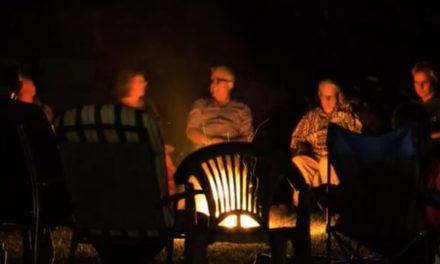A conversation with Prema Sheerin, Sacred Fire Asheville
Today’s media and cultural norms have positioned happiness as a state to achieve permanently, rather than to recognize it as one of five elemental emotions destined to arise and then subside naturally. Happiness is only part of the human experience; no less important is the balanced expression of anger, sympathy, fear and grief. In this second article (part of a series of five,) we turn once again to Prema Sheerin, healer and emotional wisdom coach. Here she shares some important insights about happiness–about what it is, and what it isn’t.
ATF: Thank you for spending time with us again, Prema. You have some important things to share with our readers about happiness. Where shall we start?
Prema: First, let’s clarify what we mean by “elemental emotion.” There are five of these: happiness, sympathy, grief, fear and anger. Each of these is an elemental energy–like fire, water, earth, etc.–that provides a message about our environment and a movement, a response to life circumstances. None are meant to be a final destination.
It is only through our thoughts and beliefs that we seek to either suppress or cling to these natural and ever-moving states of being. We often do this unconsciously, which leads to a restricted way of experiencing life. Without realizing it, we may be maneuvering to either avoid or amplify certain emotions. This is like building up a dam, or creating a flood, in the river of our being. It limits our ability to listen and to respond effectively to the situations and opportunities that life presents.
ATF: Today we are focusing on the elemental emotion “happiness.” How can being in a state of happiness not be desirable? You know, like Pharrell Williams’ popular song “Happy,” it seems like a really nice hand clapping, toe-tapping state to be in.
Prema: There are a few things to be considered about this. First, it is important to distinguish between happiness, an elemental emotion, and Joy, which I will call a meta-emotion. The meta-emotions are the very nature of being and awareness itself. Joy, Love, Bliss, and Peace are all meta-emotions. You can think of the meta-emotions as the ocean of emotion that is the very nature of existence. The elemental emotions are like the waves, arising and subsiding within that all-encompassing ocean of awareness. From this perspective, Joy (or Peace or Love) is present in the midst of all life experiences, no matter what elemental emotion is arising in any given moment.
Of course we love the feeling of happiness and, in its balanced expression, it arises in response to the experience of connection. This might be connection to our heart, to others, to the living world, to the Divine. We also experience happiness when we are aligned with our heart-connected values and when we feel as though we are offering our particular gifts in the world. Laughter, celebration, dancing, reaching for connection to others and to community–these are the signatures of this emotional expression. Happiness moves us to foster more connection. It can also bring forward the passion to express our gifts and the courage to take advantage of life’s opportunities. When we are happy, we feel connected to our gifts, our capacities and our confidence to offer them.
 And yet happiness, like all the elemental emotions, is meant to arise and fall away in response to life’s circumstances. The more we try to manipulate ourselves into feeling happy, or cling to it’s fleeting presence, the harder it is to access Joy. In today’s Western culture we have designated happiness as a destination at which we are supposed to arrive and stay. We are inundated with media and advertising which tell us that if we buy a particular thing or achieve a special status, then we will attain and maintain happiness. This is a false promise. If we believe that happiness is a state to achieve permanently, we create a great deal of anxiety, frustration and disappointment for ourselves. We find ourselves grasping for, and attempting to hold on to, something that is, by its very nature, ephemeral.
And yet happiness, like all the elemental emotions, is meant to arise and fall away in response to life’s circumstances. The more we try to manipulate ourselves into feeling happy, or cling to it’s fleeting presence, the harder it is to access Joy. In today’s Western culture we have designated happiness as a destination at which we are supposed to arrive and stay. We are inundated with media and advertising which tell us that if we buy a particular thing or achieve a special status, then we will attain and maintain happiness. This is a false promise. If we believe that happiness is a state to achieve permanently, we create a great deal of anxiety, frustration and disappointment for ourselves. We find ourselves grasping for, and attempting to hold on to, something that is, by its very nature, ephemeral.
In this climate we tend to feel as though we are failing if we are not happy. We pretend to be happy while suppressing other authentic emotions. Some of us develop an addiction to substances or activities such as alcohol, drugs, shopping, eating or sex in an attempt to fuel a permanent state of happiness. But there is the inevitable crash when the artificial ‘high’ wears off.
Happiness is associated with summer, a time of expansion and much activity. But we can’t function at that pace all the time. Just as we have to let go of summer when autumn arrives, so too we are meant to enjoy the fullness of happiness while it is with us, and then allow it to make way for the next feeling when the time comes.
ATF: So you are telling us about why we should not cling to happiness. There are some people who feel so blue that they can’t muster the energy to reach out to others. They don’t believe they will ever experience happiness again. Can you give examples of how you have worked with clients who were dealing with depression or chronic unhappiness?
Prema: Sure. One person who comes to mind had been depressed for quite some time. All he wanted was to be happy but he felt removed from his own life. It became apparent that a big part of the problem was that he was stuffing all his other emotions. We worked to help him understand and experience the balanced expression of these other feelings. Once he allowed his anger, grief and fear to be acknowledged and expressed safely and authentically, his depression began to lift. Over the period of a couple of months he was able to re-engage with his family and show up at work in a completely different way.
I had another client, Lauren, who was very unhappy and completely fixated on all the miserable and terrible events happening in the world and in our country. Lauren felt that she didn’t deserve to feel any happiness when there is so much suffering in the world. We worked on a perspective shift and she began to see that by allowing herself to experience and enjoy the simple pleasures of her life, by opening to her connection to others and to her values, she would actually be serving the world. Happiness is associated with the element fire. Fire has the capacity to bring light and warmth to the world, and to propagate itself. For Lauren it was important to understand that by allowing her happiness, she could share it with her friends, her students, her animals, and the people she came in contact with.
ATF: So in both cases you mentioned, there was a suppression of elemental emotion: of grief, fear and anger on the one hand, or of happiness itself on the other.
Prema: Yes. And there is an irony here. We can actually suppress happiness in an attempt to hold onto it and out of fear that it will go away. When we experience a moment of happiness we often find our mind getting busy trying to figure out how we got here and how we can stay here or get here again. In this way our mind takes us into the past or the future and out of the moment of pure happiness. (Editor’s note: See the first article in our series, Dancing with Fear, for how the elemental emotion fear has been amplified in our society, distorting all the other naturally arising energies.)
It’s also great to remember how helpful it is for other people when we express the full range of emotions that we are feeling. It gives them permission to do the same. This then allows access to Joy, which is present through ALL of life’s experiences, whether sorrowful or celebratory, challenging or enjoyable.
In my experience the most important thing is to bring compassion and kindness to whatever emotion we are feeling, no matter what it is. When an emotion is felt, acknowledged and expressed, then it moves, and we feel more vibrant and alive.
ATF: Prema, thank you so much for your insights about happiness. We look forward to catching up with you again for our September 2017 issue of Around The Fire, when we will look at another elemental emotion, sympathy.








